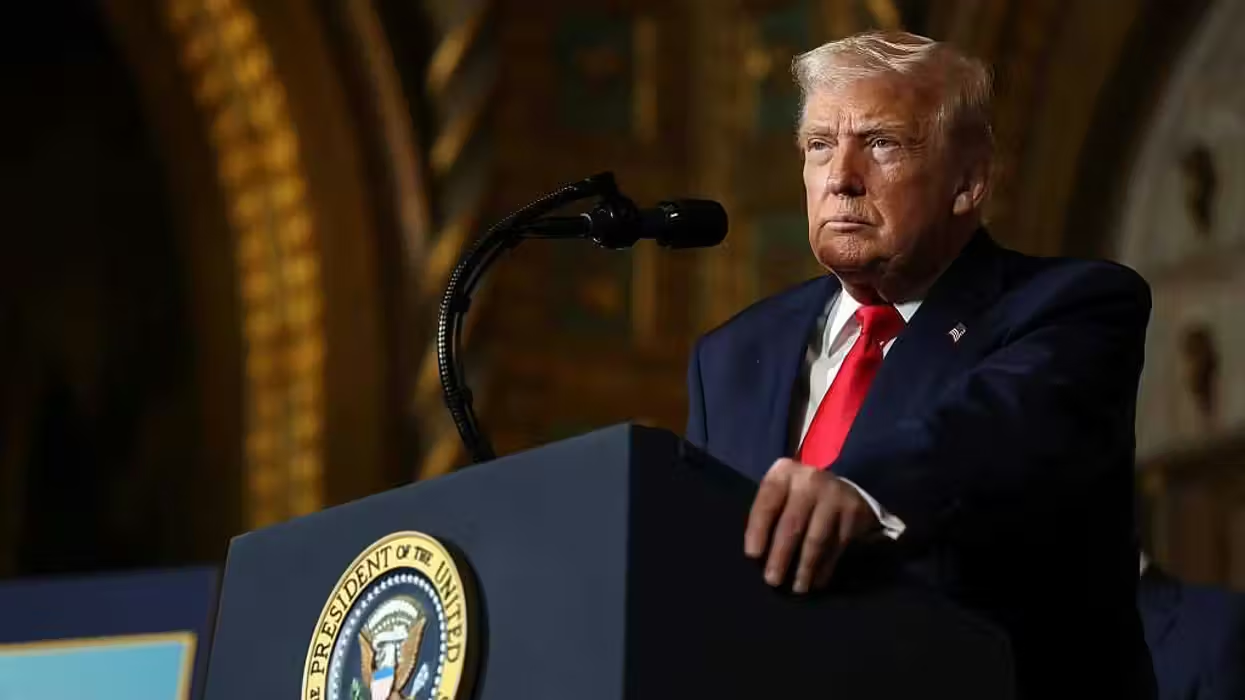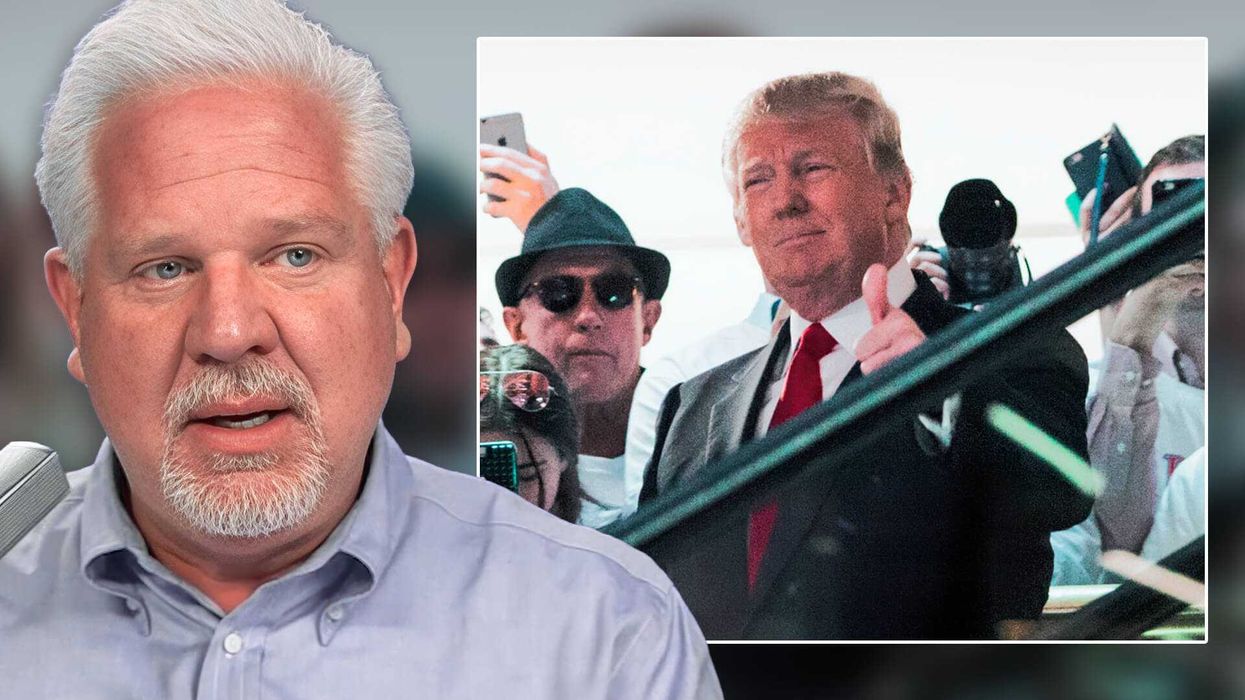
© 2025 Blaze Media LLC. All rights reserved.
Israel Congratulates Obama, But Large Questions Loom About Relationship and Mideast
November 06, 2012
Israeli Prime Minister Benjamin Netanyahu congratulated President Barack Obama on his reelection. In a statement released Wednesday morning, he said:
The strategic alliance between Israel and the US is stronger than ever. I will continue to work with President Obama in order to assure the interests that are vital to the security of the citizens of Israel.
Shortly after the TV networks called the election for Barack Obama, Deputy Foreign Minister Danny Ayalon posted on Twitter: “Congratulations to President Obama, and the American people, on his re-election. President Obama will be an excellent President for Israel.”
While the tweet was clearly diplomatic, conveying optimism, it hardly masks the difficult feelings that have characterized the relationship between President Obama and Israeli Prime Minister Benjamin Netanyahu. But despite the vast gaps in their worldviews, the two will have to work together on some weighty issues, the most fateful being how to stop Iran’s march toward nuclear weapons.
Appearing on Israel’s Channel 2 early in the morning Wednesday, both Ayalon and Israeli Ambassador to the U.S. Michael Oren tried to reassure a public that overwhelmingly favored Mitt Romney that the two governments will be able to work together.
Ayalon insisted that both the American and Israeli governments won’t allow the politics to veer into diplomacy.
Calling the American-Israel relationship “intimate,” Ambassador Oren said, “I don’t expect any change in a second term.” He said, “The relations are just fine. President Obama himself said that he has met and talked more with the Israeli prime minister than with any other leader in the world. These close relations with continue.”
On the evening before Election Day, a Channel 2 investigative program aired an interview with Prime Minister Benjamin Netanyahu in which he said he’s ready to go it alone on a military strike on Iranian nuclear facilities, even if it’s in defiance of U.S. objections. That scenario may have increased in likelihood with an Obama second term. Pledging that Iran won’t have a nuclear program by the end of his next term, if he’s reelected in January, Netanyahu explained that even President Obama has said Israel has the right to defend itself as it sees fit. The Times of Israel reported:
When it was put to him that the US has opposed a unilateral Israeli resort to force, Netanyahu said President Barack Obama had stated that Israel has the right to defend itself as it sees fit, and that Israel dare not entrust its future to others, even to the United States.
Not only has the president banked on sanctions being able to stop the Islamic Republic from acquiring a nuclear capability, the administration has been holding secret talks with Iran, reportedly to facilitate the relationship during a second Obama term. On Monday, Yediot Ahronoth broke the story that Iranian-born White House senior adviser Valerie Jarrett is the “key player” behind those talks with representatives of Iran’s supreme leader, Ali Khamenei.
Ruthie Blum, a columnist for Israel Hayom wrote that in the event of an Obama victory:
…the prime minister will have to persuade the Israeli public that only he is strong enough to withstand pressure from a less-than-sympathetic Uncle Sam. He will also have to make a convincing argument for bombing Iran without the approval or assistance of the U.S.
Israel considers the Iranian nuclear program to be the most immediate and dangerous threat at present. Blum wrote that Netanyahu’s Monday night campaign promise to not allow Iran to get a nuclear bomb means only one thing:
It means that if Obama is re-elected Israelis are going to have to clean out their bomb shelters and get ready for a large-scale call-up of the reserves, in anticipation of an ugly retaliation, possibly from all borders.
Beyond Iran, the Middle East challenges of Obama’s first term continue to be the challenges of his second term: the post-“Arab Spring” radicalization of key Arab countries including Egypt, the Syrian civil war, and how to handle new threats from the Palestinians that they want to renew their statehood bid at the UN next month.
Before the election results were in, former Israeli Ambassador to the United States Meir Rosenne told Arutz 7 that Obama “will not be able to force Israel into following his agenda” or risk encouraging the radicals in the Arab world.
More critical and less diplomatic is Likud Member of Knesset Danny Danon who told Arutz 7 on Election Day:
“We do not interfere but we can now say that President Obama was not good for Israel. We should not be hypocrites and say that everyone is good,” Danon told Arutz Sheva.“Obama supported Islam and he paid a very heavy price, he lost sympathy among the Jewish community and in Israel, and many Christians are disappointed in him as well," he added.
Danon added that Netanyahu “was careful not to interfere in the elections but to tell the truth it was not easy with President Obama.”
Largely due to the Iran threat, polls of Israeli Jews found they favored Romney three to one, but the mainstream media in Israel is largely liberal, including the newspaper Haaretz which endorsed Obama in an editorial titled “Obama is good for Israel.”
The Israeli media also accused Netanyahu of personally intervening in the elections. Netanyahu never openly voiced a preference for either candidate, but a Super PAC used a clip from a Netanyahu speech in a pro-Romney TV ad, and both the Israeli prime minister and Romney share the support of casino magnate Sheldon Adelson.
In defense of Obama, Haaretz wrote:
Relations between the two countries' armed forces have never been so close. Obama's challenge in his second term, if he wins the elections, is to lead the region to a stable arrangement of peace and security.
Before the election results were tabulated, Deputy Foreign Minister Danny Ayalon addressed the personal differences between Obama and Netanyahu to Israel Radio:
The reality is that when you are at the helm of the most important and powerful superpower in the world, or at the head of the Israeli government, there may be bouts of personal conflicts, but these are pushed aside when your objectives are nearly identical in terms of the Iranian issue, the upheaval in the Arab world, the global economy or the conflict with the Palestinians.I think that though every country has the right to its own stance — not everything is identical — overall the relationship will continue to be a working, good relationship. The moves on the ground will be more important than the personal relationship, and I don't foresee any change on that front. On the contrary.
He said, "For Israel, the best American president is the president who will be best for America. The one that the Americans elect. We have never interfered, and we must never interfere, but we will continue to enjoy the bipartisan support of the U.S., so the result of the election almost doesn't matter.”
This story has been updated to include Netanyahu’s congratulations to Obama.
Want to leave a tip?
We answer to you. Help keep our content free of advertisers and big tech censorship by leaving a tip today.
Want to join the conversation?
Already a subscriber?
more stories
Sign up for the Blaze newsletter
By signing up, you agree to our Privacy Policy and Terms of Use, and agree to receive content that may sometimes include advertisements. You may opt out at any time.
Related Content
© 2025 Blaze Media LLC. All rights reserved.
Get the stories that matter most delivered directly to your inbox.
By signing up, you agree to our Privacy Policy and Terms of Use, and agree to receive content that may sometimes include advertisements. You may opt out at any time.







